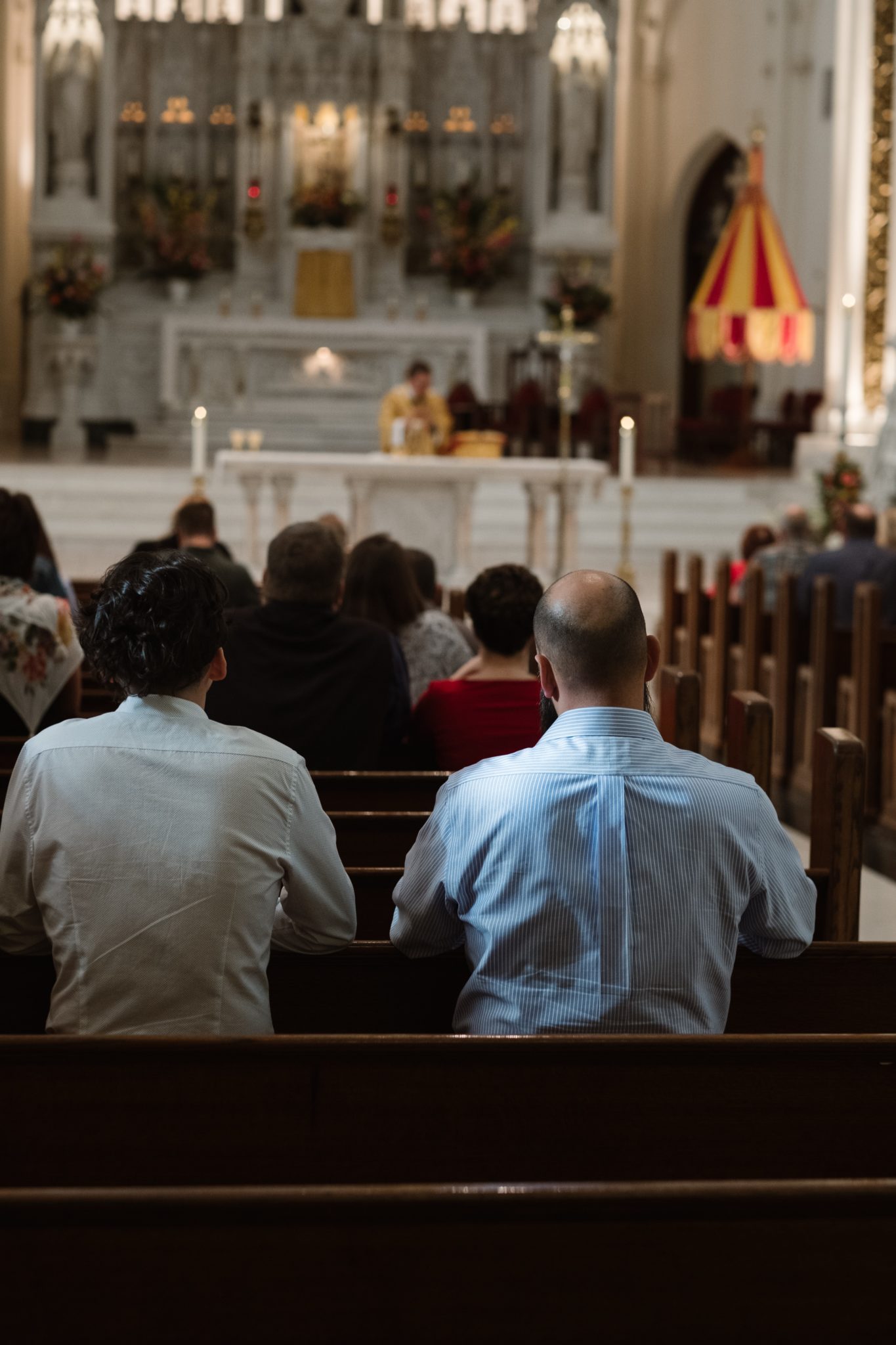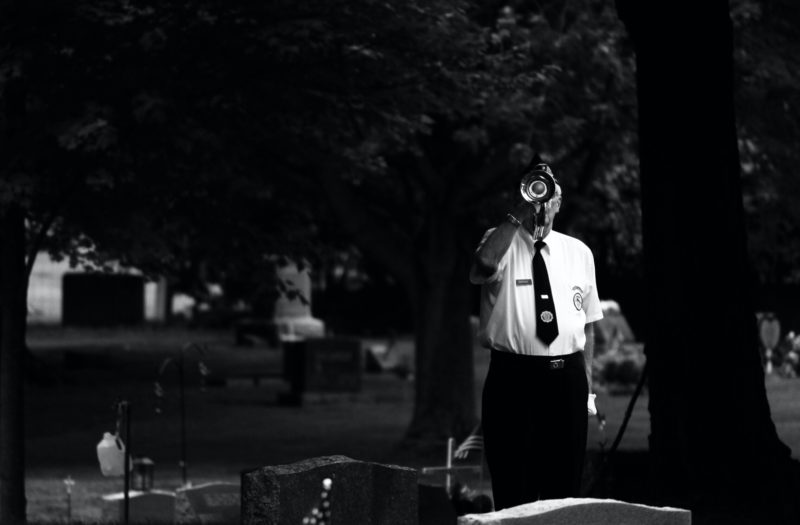
During times of grief it might be natural to wonder why a funeral is important. A funeral can be an integral part of the grieving process and memorializing a loved one’s life is a practice that spans cultures, regions, and beliefs. Most often, this is done with some kind of service: a wake, a funeral, or a service, depending on personal preference and religious belief. No matter what it’s called, a special event held to recognize, celebrate, and memorialize the life of someone once they’ve died is important not just to a loved one’s immediate family and friends, but to our communities as a whole.
Funeral traditions can vary widely across cultures and religions, but the reasons why we hold a funeral are often similar no matter our personal beliefs, location, or religious practice.
Why Is a Funeral Important?
You’ve probably heard the sentiment that a funeral isn’t for the person who has died, it’s for the living, particularly those who knew and loved the deceased.
While it’s true that a funeral occurs because a person has died, it’s also true that funerals are an important ritual for the living. A funeral, just to be clear, is a ceremony that acknowledges, memorializes, and celebrates the life of a loved one who has died. While funerals have more structure than informal gatherings, they don’t necessarily have to follow a formal structure. Funerals can be customized to accommodate personal beliefs and wishes, religious customs, and local customs. A funeral can be held at a place of worship, a restaurant, a park, or someone’s home.
There are several reasons why having a funeral is important. One is that a funeral can help surviving family and friends to acknowledge and accept the death of a loved one. Having a funeral is also important because it provides a way to say goodbye to the deceased while we reflect on their lives and how they influenced the world. Another reason why having a funeral is important is because it is a way to bring people together so that the community can offer support to those most affected by a loved one’s passing.
Social and Psychological Benefits of a Funeral
Regardless of a person or family’s religious beliefs, a funeral is important because it can offer both social and psychological benefits to those who attend. A funeral allows the grieving to accept and acknowledge the death of their loved one. Grief researchers have found that funerals can be the most therapeutic way of managing grief adjustment, but that benefit is greatest when the funeral is adequately planned and properly conducted.
A funeral can also highlight the significance of the life of the deceased. This, in turn, helps those in attendance remember that life is worth living even during painful experiences and loss. A funeral can also serve to remind us that even though someone in our life has passed, life continues and is recognized, appreciated, and respected.
While the structure of a funeral and the specifics of the service will vary based on religious belief and personal preferences, there are common practices that most funerals include. One of those commonalities is that gathering together allows mourners the opportunity to express their feelings about the deceased, whether that means sharing stories of times they shared or telling others how the deceased influenced their life.
Another commonality is that those attending a funeral offer one another support. Because they all came together for the same reason–to mourn the loss of a loved one–they can relate to each other in a way that other people likely cannot. Another reason why a funeral is important is because there’s an element of comfort the service offers. The readings (religious or not) and songs included in many funerals are most often chosen to soothe and offer consolation.
Funeral Traditions Across Different Religions
Funerals are often structured a certain way because of a person or family’s religion, but even within a religion practices can vary. For example, a Protestant service might vary from a full Catholic funeral Mass, though some of the beliefs of attendees are the same (that living a faithful life leads to an eternity in heaven, for instance). Buddhist ceremonies will be different than Muslim services, and so on.
For example, the coffin and/or urn is often present during Christian funeral services whereas in Hindu funeral customs, the body often remains at home until it is cremated. The ashes are then usually scattered somewhere in nature, rather than being displayed during a service. Another example in which traditions vary include how mourners dress at a funeral or service; Christians tend to wear black or subdued colors, but those in the Hindu faith prefer wearing white to a service.
Respecting religious and cultural traditions is one reason why a funeral is important; having a service shows a reverence for and commitment to the values that were important to the deceased, and those values are likely shared by the community, family, and friends who attend. Coming together in that shared experience can not only memorialize a loved one; it can also strengthen the bonds of those survivors who participate.
Funerals Without Religion

While religion influences many funerals, it’s not prevalent in every service. By definition, a funeral is simply a bereavement ritual. This means that groups of any type–religious or not–can adopt and practice their own customs when a loved one dies.
An example of a secular funeral might be an atheist funeral. Because atheists do not believe in an afterlife, a funeral of this sort would not mention religion or faith at all, opting instead to focus solely on memories of the deceased and the accomplishments they made throughout their life.
There are also some funerals that blend religion and more secular traditions. An example of this might be public servants like firefighters or law enforcement officers who die in the line of duty. While those individuals can certainly have a religious funeral, other aspects will likely be added to recognize their unique role in society. The same is true of veterans.
Why Support is So Important
Saying goodbye to a loved one can be one of the most difficult things we’ll do in life. Unless you share the same religious beliefs, you may not know the intricacies of each and every funeral tradition. This can make planning services more difficult during an already trying time. Having others who offer support in a variety of ways can help with the pain and grieving process.
An experienced and empathetic funeral director understands in a deep, respectful way why a funeral is important. They also understand the common and not-so-common traditions of religious and secular funerals and services, and can guide you as you make decisions about how to best proceed after the death of a loved one.



Recent Comments